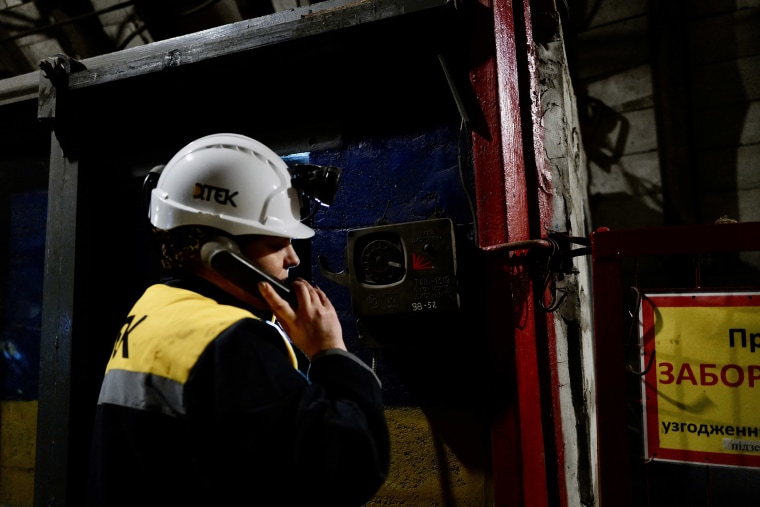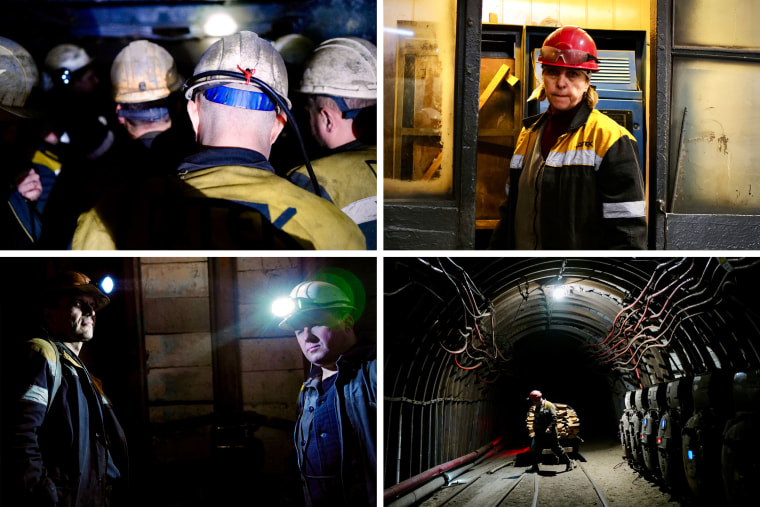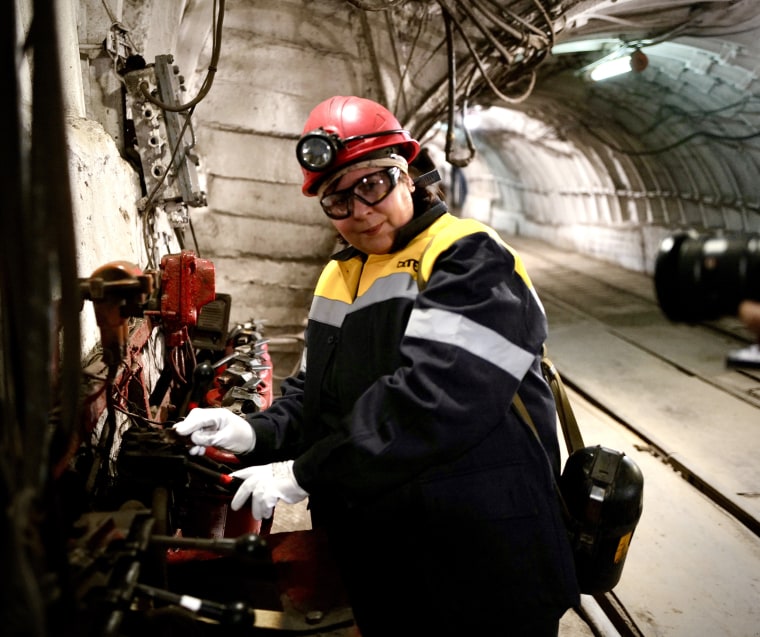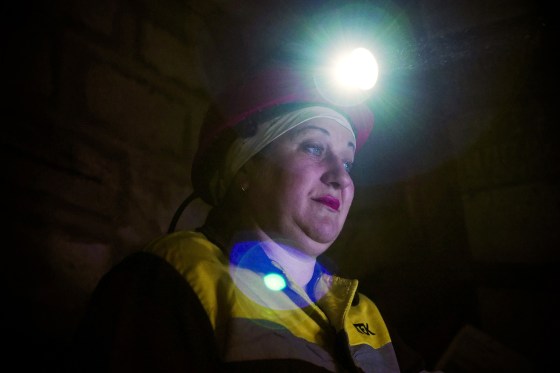PAVLOHRAD, Ukraine — They are Ukraine’s “Rosie the Riveters,” rolling up their sleeves and doing a dirty job once considered suitable only for men.
But unlike their American equivalents in World War II, they’re not working in defense-industry factories. Instead they’re going 900 feet underground, helping to dig coal and keep the power on, replacing the men who left to fight Russia. Now they’re hopeful that President Donald Trump can secure a ceasefire deal and bring an end to the war, which entered its fourth year in February.
“We really wanted to help and to replace those men who went to fight and to protect Ukraine,” Nadiya Moskalenko told NBC News on Thursday.
The 48-year-old grandmother said two of her sons had volunteered to fight Russia, and a few months after President Vladimir Putin launched his full-scale invasion in February 2022, she signed up to go down the 50-year-old mine on the outskirts of the city of Pavlohrad in eastern Ukraine.

Before the war started, the government barred women from doing jobs underground because it considered the work too physically demanding. But after many male miners joined the military early in the war and others were later conscripted, the Soviet-era policy was scrapped.
Moskalenko, who wears lipstick and eyeliner to work, operates the cable cars that move workers and supplies across the mine’s vast 75-mile tunnel network.
It was not “hard physically, but it’s a very responsible job,” she said, adding that she has to “react quickly” if anything goes wrong. “You can’t miss anything and [have] to be very attentive and responsible.”
At her mine alone, 700 of the 3,000 male workers went off to fight, according to Alyona Lapina, a communications manager at DTEK, the mine’s owner and Ukraine’s largest private energy firm. She added that 71 had been killed and 200 were wounded.
The mine is near the eastern Donbas region, where Moscow-backed separatists have been battling Ukrainian forces since 2014. Since then, the Donbas, which is made up of the regions of Donetsk and Luhansk, has been used as a staging post for Russian attacks into Ukraine. Putin illegally annexed them in September 2022 along with the Zaporizhzhia and Kherson regions. Ukrainian forces are still fighting to regain control of all four territories.

Elevator operator Iryna Basanets, 38, said she also joined up after the war began. Since then, she said, the women and men had learned to work together.
“The boys help us,” she said. “We are sweeping here, cleaning, keeping our working space clean and tidy.”
But war is always close, with an air raid siren sounding shortly after miners returned to the surface for lunch on Thursday.
The coal they mine is used primarily to power Ukrainian electricity and heating stations, key energy infrastructure that has come under frequent Russian attacks and is now the subject of a proposed temporary ceasefire accepted by Ukraine and partially agreed to by Putin.
Previous Russian attacks on energy infrastructure like power stations and substations had led to blackouts, Basanets said, leaving miners underground with no electricity or cellphone signal, though they were eventually brought back to the surface.
“We always store water in advance,” she said, adding that some blackouts are scheduled.

Both Basanets and Moskalenko said they were hopeful that Trump’s recent talks with both Putin and Ukrainian President Volodymyr Zelenskyy could lead to a peace agreement.
Secretary of State Marco Rubio and Trump national security adviser Mike Waltz said that in a phone call with Trump on Wednesday, Zelenskyy agreed to move forward with “a partial ceasefire against energy,” according to a joint White House statement. Zelenskyy later confirmed in a lengthy post on X that Ukraine was ready to implement this deal.
Their call came a day after Trump spoke with Putin, who declined to endorse a 30-day ceasefire that was accepted by Zelenskyy. But, according to a Kremlin readout of their conversation Tuesday, the Russian leader did agree “to mutually refrain from strikes on energy infrastructure for 30 days.”
“We want this to happen,” Moskalenko said of the peace agreement. “And when you really want something, then you hope and you believe that it will happen.”


